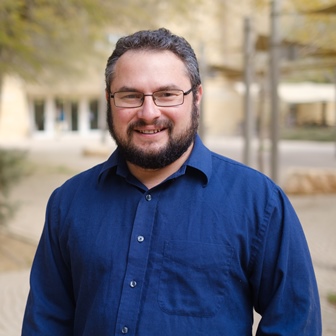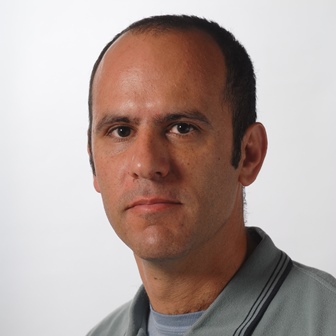The Human Frontier Science Program (HFSP), an international organization dedicated to promoting international collaboration in basic research, has awarded research grants to two BGU researchers.
Dr. Benyamin Rosental from BGU's French Associates Institute for Agriculture and Biotechnology of Drylands at the Jacob Blaustein Institutes for Desert Research (BIDR) will receive a Young Investigators Grant for a total of $750,000 ($250,000 per year for three years) together with his partner, Dr. Bo Wang from the Department of Bioengineering at Stanford University in the US, for their project "Paradoxical responses of immune systems at the tipping point".

Dr. Rosental's research focuses on comparing inverse reactions by immune systems at critical points, was graded first from nine projects that received grants. 160 projects were presented, 23 reached the next round and ultimately 9 were awarded grants.
In addition, Dr. Ronen Segal from the Department of Life Sciences will receive a Program Grant for a total of $1,350,000 ($450,000 per year for three years) with his partners: Prof. Jacob Engelmann of the Department of Active Sensing at Bielefeld University in Germany, Prof. Theresa Burt de Perera of the Department of Zoology at Oxford University, and Prof. Thomas Mueller of the Division of Biology/Mueller Lab at Kansas State University in the US, for their project "Navigating the waters – A neural systems approach to spatial cognition in fish".

Dr. Segal will receive $337,500 for the whole period. This project was graded 15th from a total of 25. 654 projects were presented, 61 went through to the next round and 25 were awarded grants.
HFSP Research Grants support innovative basic research into fundamental biological problems with emphasis placed on novel and interdisciplinary approaches that involve scientific exchanges across national and disciplinary boundaries. Projects are expected to be at the frontiers of knowledge and therefore entail risk and must include teams of scientists from different countries.
Scientists representing non-traditional life science disciplines such as biophysics, chemistry, computational biology, computer science, engineering, mathematics, nanoscience or physics are recommended because their contributions have made biological research increasingly quantitative and because such collaborations have opened up new approaches for understanding the complex structures and regulatory networks that characterize living organisms, their evolution and interactions.
The research grants (Program Grants and Young Investigators) provide 3 years of support for international teams involving at least two countries. Preference is for intercontinental collaborations. All team members are expected to broaden the character of their research compared to their ongoing research programs and interact with teams bringing expertise that is very different from their own so as to create novel approaches to problems in fundamental biology. All members of a Young Investigator team must be within 5 years of establishing their independent research group and no more than 10 years from their doctoral degree. Program Grant teams may consist of team members at any stage of their career as independent investigators.